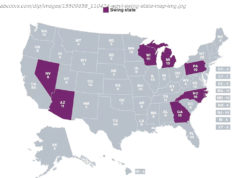It came under unusual circumstances. But the result is ominous for the GOP and other divisive candidates in key races that could determine control of the Senate.
The final special election before the November midterms is in the books. And while the race featured an unusual setup, this one might be more ominous for the GOP than its recent predecessors — for one key reason.
The headline from the Alaska special election is that Democrat Mary Peltola defeated former governor and 2008 GOP vice-presidential candidate Sarah Palin. Peltola took 51.5 percent of the vote to Palin’s 48.5 percent, bringing at least a temporary end to Palin’s belated attempt at a political comeback.
The election was actually held two weeks ago, but the state’s new ranked-choice voting system requires it to wait to collect all ballots, then eliminate candidates from the bottom up. Ultimately, third-place candidate Nick Begich (R) was eliminated, with his voters’ lower-ranked choices being added to the totals, if they ranked one of the two finalists below Begich.
Peltola took 40 percent of the first-choice votes to Palin’s 31 percent and Begich’s 28.5 percent. But given that Alaska is a red state and that both Palin and Begich are Republicans, it stood to reason Palin should pick up most of his voters. Nearly 6 in 10 voters picked a Republican first, after all.
In the end she did, but barely — and not nearly enough. Almost as many Begich voters picked Peltola as their second choice (15,445) or didn’t rank one of the two finalists (11,222) as ranked Palin behind Begich (27,042).






